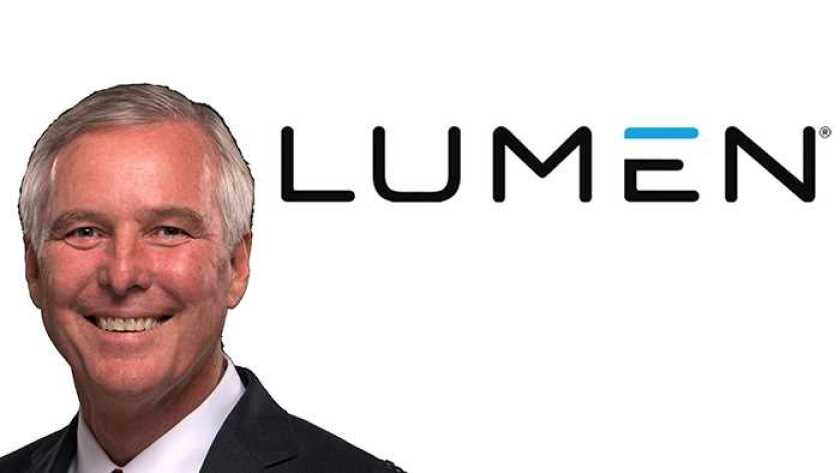He told analysts and investors that at the end of 2021, Quantum Fiber reached 2.6 million locations, and the plan is “to accelerate aggressively and ramp that enablement pace to over 1 million new locations”, he said.
The company has “a goal of hitting the run rate of 1.5 million to 2 million enablements per year as we exit 2022”, said Storey (pictured).
“Quantum Fiber revenue grew 22% year-over-year and we look forward to the growth that will come from our much more aggressive Quantum stance,” he said. “We see a long-term significant and sustainable revenue growth opportunity for our mass markets business resulting from our Quantum Fiber investment.”
CFO Neel Dev said the company expects to invest $1 billion in Quantum Fiber this year.
Lumen reported net income of US$508 million for the fourth quarter of 2021, compared to reported net loss of $2.289 billion for the fourth quarter 2020.
Over the whole year, revenue was down compared with 2020, to $19.7 billion compared with $20.7 billion a year before.
Dev said: “Wholesale revenue was essentially flat on a sequential basis and year-over-year declined 4.3% versus the 7% decline in the third quarter. Wholesale benefited from demand for fibre infrastructure and a few one-time items. We continue to manage this business for cash.”
Lumen last year agreed to sell its incumbent local exchange carrier (ILEC) business across 20 states, to funds managed by Apollo Global Management for $7.5 billion. The company retained its business in 16 states, where it is focusing its Quantum Fiber efforts.
The group also announced the sale of its Latin American business in July 2021 for $2.7 billion to Stonepeak, which four years ago bought euNetworks.
“We now expect the transactions to close in early third quarter of this year,” said Dev.
But Storey emphasised in his results call that the group remains “excited” about its enterprise business. “We continue to invest aggressively in our edge compute and storage platforms, our managed service offerings, SASE [secure access service edge] and our security products,” he said.
“We have successfully launched our fully digital self-service edge compute ordering system, which allows existing and new customers to self-provision services, including bare-metal and storage solutions in minutes without the need for human interaction,” he added.
“We believe our extensive long-haul and dense metro infrastructure and our ultra-low latency, ultra-high-capacity network provide cost advantages over many of our competitors and deliver a powerful customer experience.”






